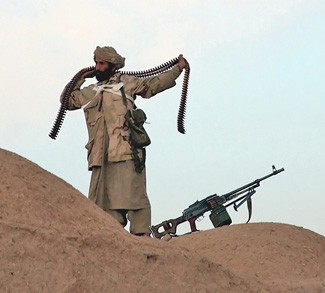Summary
When rumors surfaced in July that Taliban leader Mullah Omar died back in July 2013, reports that were subsequently confirmed by the Taliban, many believed that this might be the beginning of the end of the group. Mullah Omar was the type of leader who relied on his personal authority to smooth over the tribal and regional divisions which could otherwise fracture the movement and reduce its effectiveness on the battlefield. Moreover, questions surrounding the support base of his successor, Akhtar Muhammad Mansour, further suggested that the Taliban’s days as a formidable fighting force might be numbered.
Fast-forward to September and we know that this is not the case. And though the group has split into several warring factions, the result remains the same: more attacks, more fighting, and more problems for the government in Kabul. Even worse, Islamic State has been able to exploit divisions within the Taliban to gain a stronger foothold in the country.
Impact
Taliban Infighting a Boon for Islamic State
At first glance one could assume the chaos of Afghanistan affords fertile ground for an Islamic State franchise, but this isn’t necessarily the case. The Taliban as it existed under Mullah Omar has a very similar ideological mandate to that of ISIS, making the groups competitors for the mantle of the Caliphate. The Taliban also had a major advantage over ISIS in that it was a local outfit, created and sustained by all-important tribal identities over the long the struggle of the Afghan civil war. The post-2001 Taliban was able to fuse these various traditions to become a pseudo Islamic national liberation movement, fighting against the NATO-installed government in Kabul. The strategy worked, and the Taliban’s ranks swelled with Pashtuns who scared of being dominated by the Tajiks and Uzbeks of the Kabul government.
Islamic State on the other hand has none of the local appeal of the Taliban. It has been viewed as an outsider, and interloper, and lacks allies with which to coordinate on the ground – that is until now. The infighting plaguing the Taliban now affords ISIS a shining, yellow-brick inroad into Afghanistan.




